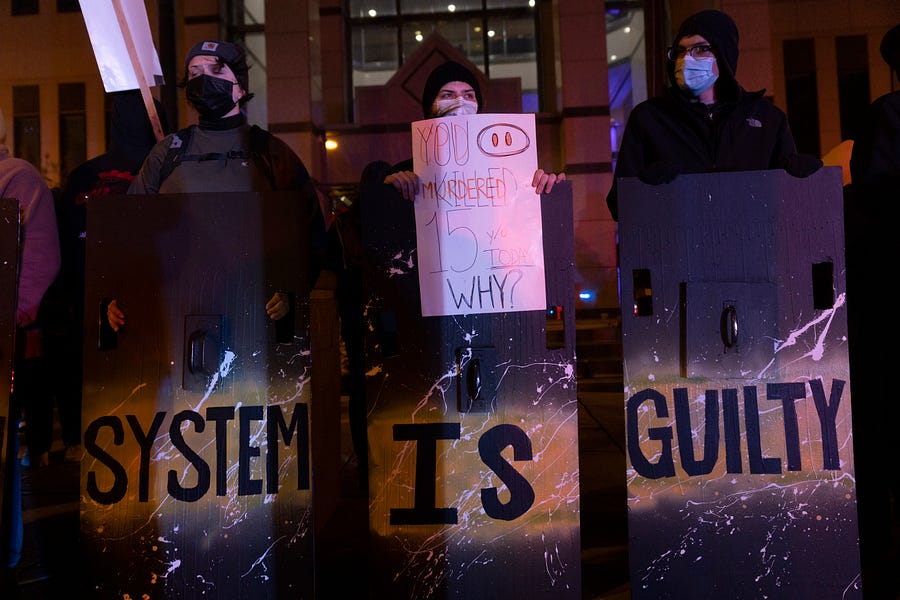Nothing is more vital to serious thinking than the ability to make distinctions between superficially similar things. The gas pedal and the brake pedal look awfully similar, but if you can’t distinguish between them, good luck getting out of the driveway safely.
Distinctions don’t just matter among similar-but-different things. They’re just as crucial when discussing degrees of a single thing. I think there’s more wisdom contained in the phrase (usually attributed to the Swiss philosopher-scientist Paracelsus) “The dose makes the poison” than in most books. It’s a bedrock rule of toxicology: Everything is toxic if taken to an extreme. A little alcohol, aspirin or water is good, and sometimes essential, but too much can kill you.
The wisdom extends beyond the medical. A healthy interest in something—sex, sports, politics, whatever—is usually fine or even desirable. But obsessions are dangerous. I’ve long argued that nationalism is like salt. A pinch brings out the flavors in a dish and helps combine them. Too much ruins the meal. Way too much is literally lethal. A little nationalism binds citizens to their country in healthy ways. Too much sets citizens against each other and crowds out other priorities such as individual rights, economic freedom and cultural diversity. Way too much can lead to horrible wars and oppression.
It seems to me that many of our worst problems today stem from the inability to make meaningful distinctions of both kinds—i.e., between different things and degrees of the same thing.
This week, Derek Chauvin, a former Minneapolis police officer, was convicted of second-degree murder and two other charges because he held his knee on the neck of George Floyd until he died. There’s a good illustration of my point. If Chauvin had put his knee on Floyd’s neck for one minute, Floyd would be alive and Chauvin would probably still be a cop. But the difference between one minute and nine minutes is a life-and-death distinction.
Also this week, a police officer responding to a 911 call in Columbus, Ohio, shot and killed a black teenage girl who was lunging at another teen with a knife. Reasonable people can debate whether the shooting was justified. From what we know now, it seems to me that it was. But even if new facts emerge, shooting someone who’s poised to stab someone is profoundly different than choking the life out of a handcuffed unconscious man.
Yet to listen to a slew of commentators, all you need to know is that “another” white police officer killed a black person. Phrases like “open season” and even “genocide” sometimes get thrown into the conversation. Police abuse is a real and legitimate problem. But this necessary concession to reality doesn’t make such rhetoric any less untethered from reality. If it were open season on black people, the officer wouldn’t have stopped shooting after taking down the assailant with the knife (and Chauvin wouldn’t be going to prison).
But this is only one facet of the larger problem. Partisans on both sides of the political aisle routinely take what they see as a real problem—illegal immigration, climate change, cancel culture, Big Tech’s influence or, of course, racism—and throw out all meaningful distinctions. Many Democrats, President Biden included, describe climate change as not just a problem, but as an “existential” or “extinction-level” threat. It’s not. Many Republicans routinely describe private social media companies banning certain people from their platforms as the end of free speech.
My point isn’t just that exaggeration and crisis-mongering are bad, though they are, because they drive bad policies and turn even minor disagreements into cause for demonization.
No, the point is that what reasonable people see as exaggeration or “extreme rhetoric” is a symptom of the larger malady. After all, many of the exaggerators actually believe what they’re saying. They believe their exaggerations because something has happened in this country that has fostered a zero-tolerance policy for meaningful distinctions in many of our elite institutions, on the left and the right.
Try to host a prime-time cable news show or maintain your status as a public intellectual—or win a primary!—while simultaneously telling people the sky isn’t falling.
I don’t know all the reasons why it’s happened, but it has. A little passion is a valuable thing. But too much passion crowds out reason and the ability to listen to other points of view. And that really is poisonous.








Please note that we at The Dispatch hold ourselves, our work, and our commenters to a higher standard than other places on the internet. We welcome comments that foster genuine debate or discussion—including comments critical of us or our work—but responses that include ad hominem attacks on fellow Dispatch members or are intended to stoke fear and anger may be moderated.
You are currently using a limited time guest pass and do not have access to commenting. Consider subscribing to join the conversation.
With your membership, you only have the ability to comment on The Morning Dispatch articles. Consider upgrading to join the conversation everywhere.